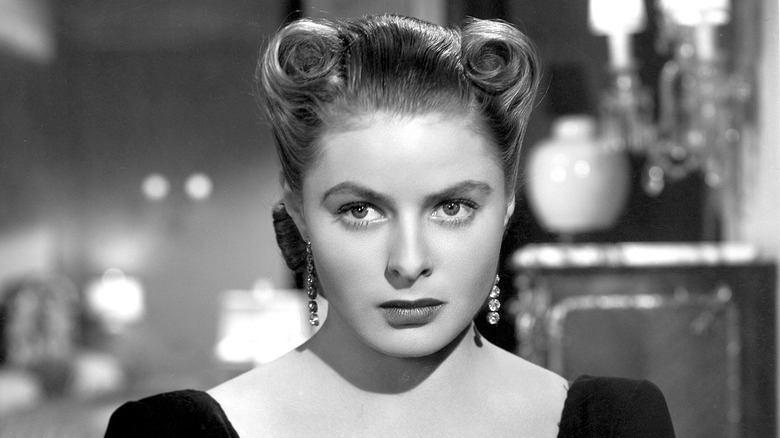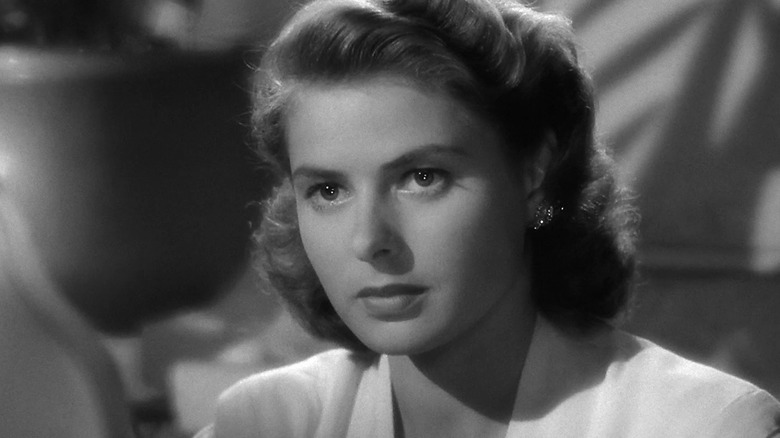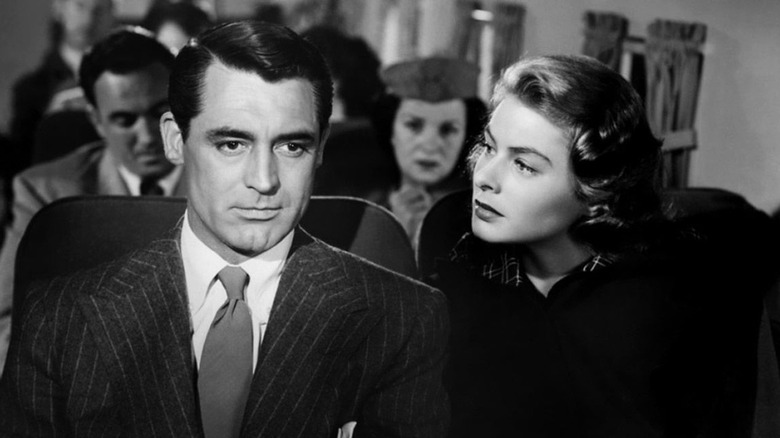Ingrid Bergman Didn't Love How American TV Treated Her Films
American television is nothing without the commercial break. The industry seems to live and die on the back of advertisements — or, at least, it did before the age of streaming. In the Before Times, there were few ways to watch a film or show without commercial interruption. It ingrained itself so fully into the daily practice of watching anything. Nowadays, watching a syndicated movie on a channel like TNT or FX offers a nostalgic sort of comfort, especially in contrast to the more purposeful practice of binge-watching for hours on end.
Of course, this might be a totally American attitude towards films that air on television — or at least it was to Ingrid Bergman. The Swedish-born actor is well known for her work in classic Hollywood films, the most famous of which were constantly on air at the height of her career. From "Casablanca" to "For Whom the Bell Tolls," Bergman's early filmography enjoyed a wildly popular second life on American TV — and while Bergman relished the accessibility of the platform, she wasn't overly fond of the way her films were pared down for the small screen.
The chopping block
Though Bergman endured a very public falling out with Hollywood in the '50s, she was reinstated as a darling of the Golden Age — and free to work on U.S. soil again — before the decade was out. In the '60s she diverted her time between Hollywood work and acclaimed international pictures, and during this quasi-second act, she sat down with LA Times critic Cecil Smith to discuss her career in detail. Naturally, Smith was curious how Bergman felt watching her early films on television; while Bergman conceded that there were "so many wonderful memories" attached to those films, the experience wasn't quite the same with all those pesky commercials in the way:
"I think your commercials are just killing. I don't understand how the American people can have the patience to have every picture broken up every five minutes ... Why should they be broken up all the time?"
American TV of the '60s was very unlike Europe, which "collected" commercials at the beginning and end of a picture or inserted one intermission-style commercial break in the middle. "And then the picture flows," Bergman explained. "Same thing with a play, any kind of documentary. There is no cutting and chopping it up like they do here."
To each their own
It's funny what you'll put up with when no other option seems readily available. With streaming as the new alternative, the idea of a commercial break seems positively archaic, bordering on torture for those accustomed to binge-watching at leisure. Now, the constant cut to commercials every 20 minutes seriously hinders the flow of a film — and also tacks at least a half hour onto a movie that's only really 90 minutes long. I still feel like there's something soothing about catching a "Bad Boys" marathon on a Saturday night or dropping in on TNT's "Star Wars" marathon weekends. Besides, commercials can be works of art sometimes.
Still, Bergman definitely had a point when she disparaged the U.S.'s overreliance on advertisements. At least we eventually noticed the error of our ways, right?


